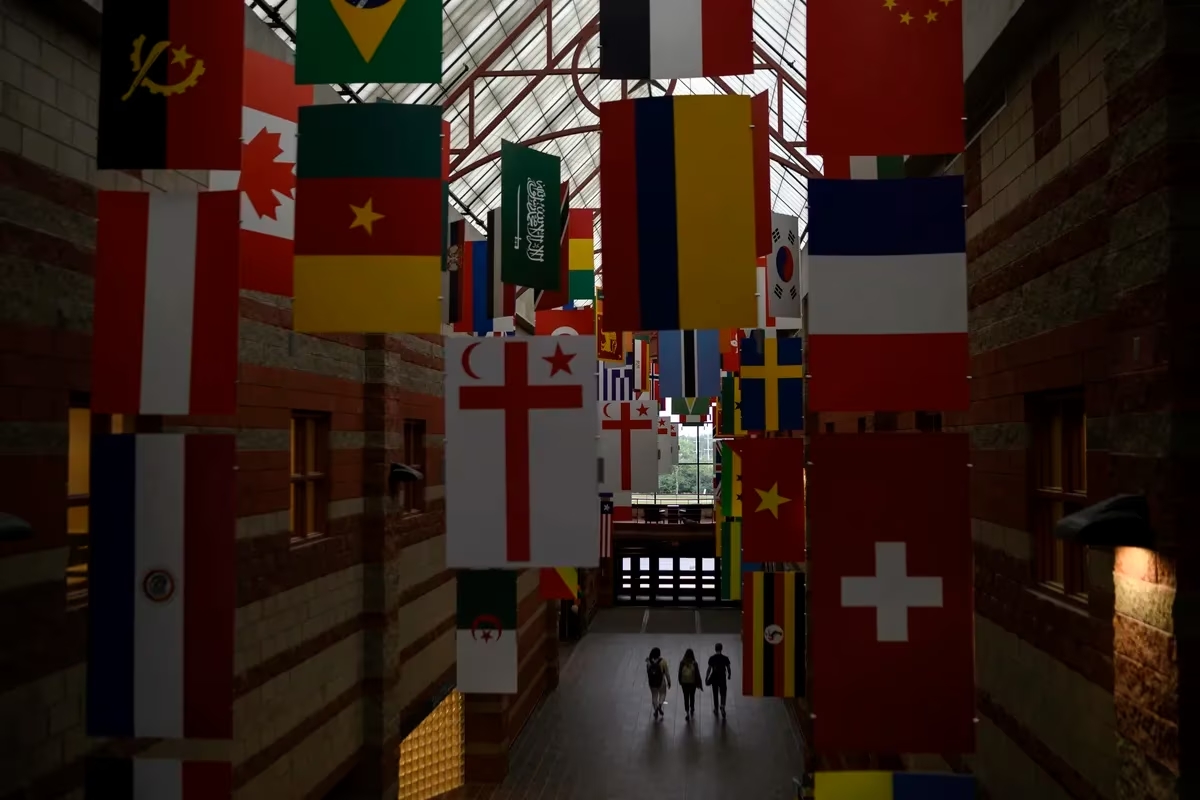
Immigration Minister Marc Miller indicated last month that Canada is on track to welcome a record 900,000 international students this year. DARREN CALABRESE/THE GLOBE AND MAIL
Immigration Minister Marc Miller is looking into fast-tracking study permits for foreign students applying to attend “trusted” universities and colleges that carry out conscientious checks on applicants and offer support to students after they arrive in Canada.
Immigration, Refugees and Citizenship Canada (IRCC) has been in talks with universities about creating a two-tier system that allows foreign students with places at established institutions to have their study permits expedited.
The federal government has also been talking to provinces – which are responsible for education – about the proposed “trusted universities” framework, which would reward institutions that properly support international students by, for example, helping them find affordable housing.
Mr. Miller indicated last month that Canada is on track to welcome a record 900,000 international students this year, roughly triple the number of a decade ago.
Universities hope the initiative will address backlogs in the processing of study permits by removing the need for the IRCC to double check verifications that have already been carried out by admissions departments.
The IRCC told The Globe and Mail in a statement that it is undertaking a review of the international student program to examine how the department “can ensure that international students are well supported while in Canada.”
It said it is working to identify colleges and immigration consultants who abuse the immigration system. Earlier this year, a group of Indian students found they had been issued fake admission letters to Canadian colleges and were facing deportation.
“IRCC is working closely with our federal counterparts, educational institutions and other key partners to address ongoing challenges including fraud and misuse of the program on the part of corrupt individuals and institutions,” it said in a statement.
“As part of a multipronged approach to upholding the program’s integrity, IRCC monitors and analyzes a variety of indicators to identify potential fraudulent individual and/or institutional actors.”
At the cabinet retreat in Charlottetown last month, new Housing Minister Sean Fraser – a former immigration minister – floated the idea of a cap on the number of students allowed into Canada.
He said some colleges “exist purely to profit off the backs of vulnerable international students rather than provide quality education to the future permanent residents and citizens of Canada.”
He said you have to ask “some pretty tough questions” when schools that already have “five to six times as many students enrolled as they have spaces for” in student housing continue to recruit and enroll more applicants.
Everett Dorma, spokesman for the University of Regina, which has more than 4,000 international students from approximately 100 countries, said affordable housing is particularly important to students from abroad and that his school’s halls of residence offer enough space for new arrivals.
He said the trusted institutions framework now being discussed “is intended to address concerns related to the growth in international students applying to study in Canada, the shortage of housing/accommodations in some markets, the potential vulnerability of international students and other issues.”
“International students bring a global perspective and diversity to our university and help enrich our learning environment for both domestic and international students,” he added.
Graham Barber, assistant director of international relations at Universities Canada, said his membership organization has been working for a year on the trusted institutions framework with the federal government.
The hope, he said, is that it will “create a lighter-touch” system for processing study permits and do away with the duplication of checks.
Aissa Diop, spokeswoman for Mr. Miller, said no final decisions have been made and that the IRCC is having discussions with “a small group of designated learning institutions from across Canada intended to represent the diversity of the sector on how this model could work. IRCC is also consulting the provinces and territories, as well as national education associations.”
“A trusted institutions framework could, as one example, offer expedited study-permit processing for applicants destined to institutions that demonstrate they are meeting a higher standard beyond simply being designated to host international students, in terms of international-student supports and outcomes,” she said.
Joseph Wong, the vice-president, international, at the University of Toronto, said that along with other universities, his school has been advocating for a year ”for a student-visa processing framework that incentivizes best practices around recruitment, retention and support of international students and eliminates duplication of processes.”
Lori Wilkinson, the University of Manitoba’s Canada Research Chair in Migration Futures, said long delays in processing study permits mean Canada is losing out to other countries with more streamlined systems.
“If you are a student, you are sending applications all over the place,” she said. “You are not going to pick Canada if you have to sit and wait.”
MARIE WOOLF
The Globe and Mail, September 12, 2023
